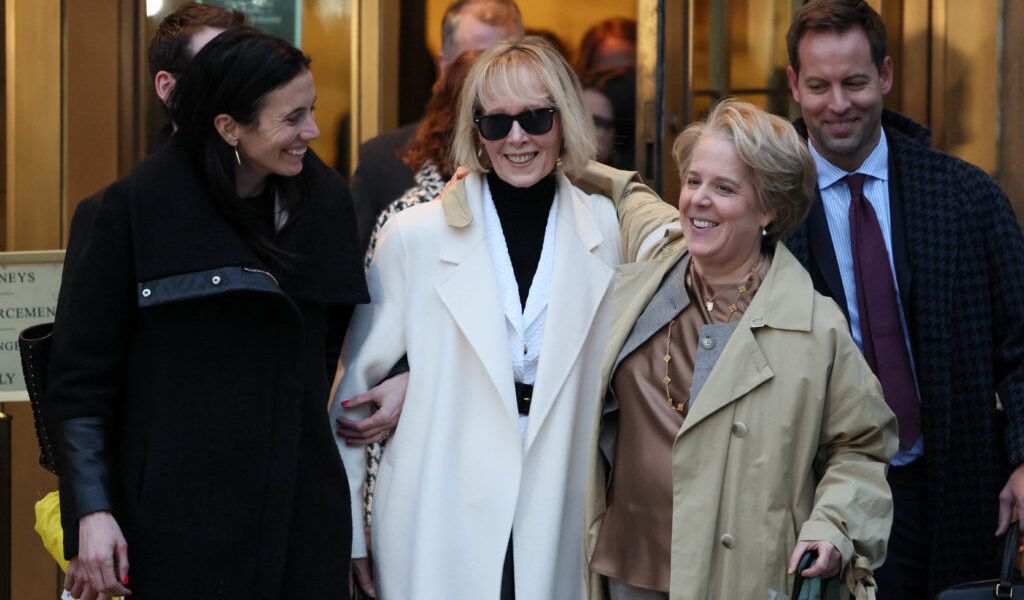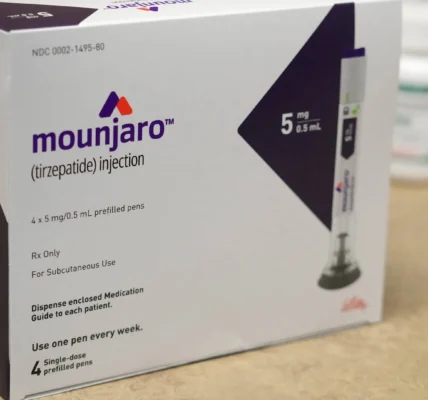Jury verdict Trump is required to compensate E. Jean Carroll $83.3 million for defamation.
Introduction:
Following a recent jury verdict ordering him to pay $83.3 million in damages to E. Jean Carroll for defamation, the legal environment around former President Donald Trump has once again taken center stage. In addition to illuminating the difficulties of defamation claims involving prominent individuals, this momentous ruling represents a turning point in Trump’s ongoing legal struggles. We will examine the background, intricate legal issues, and potential ramifications of the jury’s verdict in this extensive blog post that delves deeply into the specifics of the E. Jean Carroll case.
A federal jury found on Friday that Donald Trump owes E. Jean Carroll $83.3 million in damages for defaming her in remarks he made while serving as president. The writer claimed that Trump had sexually assaulted her at a department shop in New York in the 1990s.
The enormous civil decision was handed down less than three hours after the nine-member jury in U.S. District Court in Manhattan started deliberations. This is on top of the $5 million sexual assault and defamation award Carroll obtained against Trump last year.
When the anonymous jury’s unanimous decision on compensatory and punitive damages was read out at 4:40 p.m. ET, Trump was not present in court.

But a short while later, he declared he would appeal it in a social media post.
According to a statement from Carroll, “this is a huge defeat for every bully who has tried to keep a woman down, and a great victory for every woman who stands up when she’s been knocked down.”
The ruling today demonstrates that everyone in our nation is subject to the law, including the wealthy, well-known, and past presidents, according to her attorney Roberta Kaplan. Standing up to someone like Donald Trump, who values celebrity, fortune, and power over upholding the law, is possible.
Carroll was given a jury verdict of $7.3 million for compensatory damages related to mental distress and an additional $11 million for compensatory damages related to her reputation. Compensation damages are granted to compensate an individual for their real losses.
Once they concluded that Trump had “acted maliciously, out of hatred, ill intent, spite, vindictively or out of wanton, reckless, or willful disregard of Ms. Carroll’s right,” they gave her an additional $65 million in punitive damages. This was said in a statement made by Trump on June 21, 2019.
In those remarks, as well as those made since, Trump has denied having met Carroll, implied that she manufactured her allegation in order to promote a book, and said that Carroll was not “my type.”
Punitive damages are used to hold defendants accountable for their crime.
In her closing statement earlier on Friday, Carroll’s attorney asked the jury to give Carroll a “very large” sum of money in order to get the rich former president to “stop” disparaging her.
The single thing that will thwart him is the choice you make on exemplary compensation; he isn’t concerned about the rule of law or the truth; he cares just the finances,” Kaplan said.
“What would it take for him to give up? You’ve cost him a huge amount of money, she remarked.
“Absolutely ridiculous!” was what Trump stated in a social media post following the ruling on his TruthSocial website.
The front-runner for the GOP presidential nomination, Donald Trump, stated, “I fully disagreed with both verdicts, and am going to challenging this whole Biden Directed Witch Hunt focusing on me and the Republican Party.”
“The way our legal system is being utilized as a political weapon has gotten out of hand. They have taken away every privilege guaranteed by the First Amendment to the Constitution. I am not in America.
The two distinct cases filed by Carroll before they got to trial have not been well-supported by appellate courts thus far, according to Trump.
However, he might be able to at least get the amount of money he owes her reduced if the findings are overturned on appeal.
The U.S. Court of Appeals for the 2nd Circuit rejected Trump’s claim last month that, as president at the time of his defamation of Carroll, he was exempt from damages in the present case.
When Trump did not bring up presidential immunity for years after Carroll sued him in 2019, the appeals court determined that Trump had forfeited the right to do so.
During his appeal of the previous sex assault and defamation case ruling, Trump put $5.6 million last year as security.
He is expected to be required to deposit security exceeding $90 million in the event that he chooses to appeal the decision in the ongoing case.
Carroll is not going to get any money from Trump until the appeals are concluded.

Before sending the jury out of the room, Judge Lewis Kaplan—who is unrelated to Roberta—told them, “My advice regarding you is that you never tell anyone that you’ve been on this jury, and I won’t say anymore more about it.”
Judge Kaplan told them before they could start debating that they had to acknowledge the truth that Trump had “sexually assaulted” Carroll in the middle of the 1990s and had defamed the writer in 2019.
The court stated, “It is up to you to determine whether Mr. Trump acted intentionally when he issued his two statements” against Carroll.
As the matter has already been determined, you have to accept as true the facts as I presented to you,” the judge remarked, alluding to Trump’s decades-long sexual abuse of Carroll and his subsequent accusations against her.
With a grimace on his face, Trump observed the instructions.
Following Carroll’s attorney’s closing statement, which asked jurors to provide monetary damages “large enough that it will finally make him stop” defaming the writer, Trump earlier stormed out of the courthouse.
Shortly after the court threatened to put Trump’s attorney Alina Habba in jail before the case’s summations could begin, the president made her abrupt exit.
“It will be documented that Mr. The judge remarked, “Trump just got upwards and left the courthouse.”
About an hour had passed before Trump made his reappearance, right before Carroll’s attorney made her closing remarks and after Carroll’s attorney had concluded her summation.
According to Carroll, who wrote about this in a 2019 New York magazine piece, Trump sexually assaulted her in the middle of the 1990s in a dressing room at the Bergdorf Goodman departmental shop on Fifth Avenue, which is very next to the Trump Tower, where he worked and lived.
Back then, Trump refuted the claim, claiming she was making it up.
Carroll was the victim of sexual abuse by him during the attack, according to a Manhattan federal court jury last year, and he had defamed Carroll in remarks he made in late 2022 refuting her allegations.
Subsequent to the jury’s 2022 verdict, Kaplan decided later in 2023 that jurors in the present trial would have to concede as established by law that Trump had sexually assaulted Carroll and insulted her in his 2022 utterances.
Trump attacked Judge Kaplan on social media on Friday, saying the judge had “absolute hatred of Donald J. Trump (ME!)” in response to the judge’s judgments in the case. 14 posts about Carroll during his court appearances were made on Trump’s Truth social media account.
Carroll’s attorney Kaplan requested the jury to award punitive damages to Trump during her closing statement, pointing out that he had continued to defame Carroll even after a jury last year found him to be at fault and ordered him to pay Carroll $5 million.
Carroll has been the target of vile emails, tweets, and death threats as a result of Trump’s remarks, the attorney claimed.
Roberta Kaplan stated, “The dollar amount has to be very large.” After Trump accused Carroll of fabricating her allegation, the attorney stated, “It is at least as much and probably much more than the $12 million” that an expert witness had concluded it might cost to restore Carroll’s image.
“In the last trial, Donald J. Trump did not even make an effort to appear; yet, in this damages trial, he has made every effort to be present, and his money is the one thing that matters to him,” Kaplan stated.
In an interview, Trump said that he could pay $1 million a day for ten years and still have money in the bank. Kaplan stated that Trump “is worth billions of dollars.”
“I encourage you to stop, take some time backwards and contemplate the bigger context when you commence deliberations—a previous president of the United States who was sexually assaulted, denigrated, and is still disparaging people.”
Judge Kaplan had become agitated earlier by Trump’s attorney Habba, who had previously annoyed him by being late for the trial. Habba continued to argue that defense attorneys ought to have the right to display juries a slide during the jury’s summing that contained some of Carroll’s tweets.
Judge Kaplan said, “You are not using that slide, period. You have no intention to use a slide that represents how many tweets there were.”
The court expressed his concern when Habba stated, “I need to make a record,” alluding to recording her argument.
The judge pulled Habba aside and said, “You are going to spend some time in the lockup. Now sit down.”
During Habba’s last dispute, Kaplan yelled at her many more times, once threatening to “call consequences” if she persisted in pursuing a certain issue.
Habba summarized Carroll’s case by saying that she “has failed to demonstrate that she is entitled to any kind of compensation at all.”
Ms. Carroll’s statements caused harm; it is common sense that she failed to meet that burden.”
Carroll had made up her story of getting “thousands of threats,” according to the lawyer.
Carroll had testified that the majority of those threats had been removed by her, rendering them unusable as proof.

Habba stated, “Either Ms. Carroll is lying to you and those communications never existed in the first place, or she deleted them because she wants you to rely on them, and guess whom, what, they are not here. Therefore, she has to give them to you in order to validate her claim for damages, and that is a fact.”
In addition, Habba stated that Carroll “was happier than ever” and “did not suffer any emotional harm” following the publication of her 2019 allegation that Trump had raped her.
It was nice, Habba remarked, “that she told Vanity Fair [magazine] that she received.” Is this someone whose world has fallen apart and who is unable to sleep, or is this someone who was living through one of the most carefree and joyous periods of her life, in a cocoon of love?
As per the lawyer, “she was relishing the increased focus she was getting.”
The judge warned the jury before the arguments started and they went inside the courtroom.
“In opposition to attorney is the sole individual who is authorized to speak throughout closing arguments,” Kaplan said. “No other remarks or interruptions are allowed. This will hold true when I charge the jury and it will also apply to counsel at that time.”
Trump made remarks while seated with his attorneys at the defense table that were audible to jurors, according to complaints made by Carroll’s counsel throughout the trial.
According to Kaplan’s earlier ruling, there was no legal dispute over Trump’s defamation of Carroll because of the earlier ruling. Following this decision, the jury’s only remaining task was to decide on monetary damages.
With regard to Carroll’s charge, Trump stated, “I consider it a false accusation,” during his extremely brief trial testimony on Thursday.
Given that the previous jury had decided that Kaplan had sexually molested Carroll, Kaplan excluded that testimony.
In the New Hampshire Republican presidential primary earlier this week, Trump triumphed against former UN ambassador Nikki Haley. The Iowa GOP caucuses were won by him last week.
History:
Former Elle magazine journalist E. Jean Carroll said that during the mid-1990s, Donald Trump had sexually assaulted her. The claims were sharply refuted by Trump, who said he had never met Carroll and denounced the accusations as untrue. Carroll claimed in November 2019 that Trump’s remarks damaged her image and made her a target of public mockery, which led to her filing a defamation lawsuit against him.
The Legal Process:
It was an extensive and well followed judicial process that culminated in the current jury verdict. Because Trump called Carroll a liar and hurt her image both personally and professionally, Carroll’s legal team claimed that Trump’s comments amounted to defamation. However, because Trump made these remarks while he was still President, the defense argued that they were political in character and therefore protected by the First Amendment.
Important Points of contention:
Figuring out whether Trump’s remarks qualified as protected political speech or defamation was one of the case’s most important elements. Carroll may have had a strong case, as seen by the jury’s decision to give her an incredible $83.3 million in damages. The focus keyword “E. The “Jean Carroll defamation case” highlights the significance of the arguments presented in court and how they influenced the decision.
Why the #MeToo Movement Is Important:
In influencing public conversation on sexual assault and harassment, the #MeToo movement has been essential. A cultural change in which survivors feel more emboldened to share their tales publicly is the context in which Carroll’s story surfaced. Carroll’s win in this defamation case is underscored by the wider societal discourse on the responsibility of people who face allegations of sexual misconduct, as well as the verdict itself.
Defamation and the First Amendment:
Defamation law and the First Amendment overlap in a complicated and subtle way. Although it is a basic right, the right to free speech is not unqualified, particularly when making false remarks that damage someone’s image. The limits of free expression are seriously called into question by this case, especially in light of public people and their remarks.
Significance for Upcoming Cases:
The jury’s decision in the defamation case of E. Jean Carroll established a precedent that will have a big impact on defamation cases involving public personalities in the future. The payment of such a large sum in damages conveys a strong message about accountability and may have an impact on how people, particularly those in positions of authority, handle allegations and public remarks.
Public Response and Press Coverage:
Different people have reacted differently to the jury’s verdict, which reflects the divisive nature of modern American politics. The way the public has seen the case has been greatly influenced by media coverage, which has included commentary on the verdict’s wider ramifications as well as an analysis of the legal arguments and witness testimony.
From the viewpoint of E. Jean Carroll:
E. Jean Carroll has been outspoken in her pursuit of justice and in making people in positions of authority responsible for their deeds throughout the court procedures. Through interviews, articles, and social media posts, she shares her perspective, which sheds light on the emotional toll of the court struggle and emphasizes the value of speaking out against defamation, especially in situations involving sexual assault.

Conclusion:
The verdict rendered by the jury in the defamation case of E. Jean Carroll represents a turning point in the legal disputes pertaining to Donald Trump. A strong message about the repercussions of making false comments that damage someone’s image, especially for famous persons, is sent by the $83.3 million in damages. The convergence of the First Amendment, defamation law, and the continuing societal dialogue concerning sexual assault and harassment are all affected by this case in more general ways. The E. Jean Carroll case represents an important milestone in the continuous quest for justice and responsibility as the judicial system continues to change.




